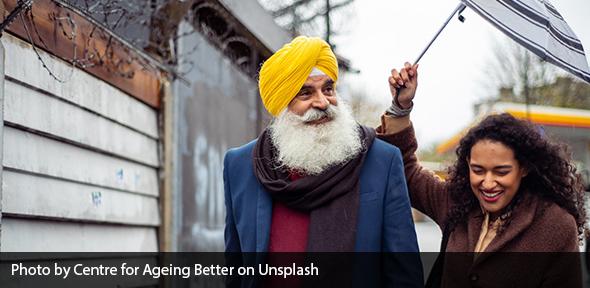
By Andy Cowan and Louise Lafortune
December 2023
A new report from the World Health Organization chimes directly with discussions on how to break the cycle of intergenerational adversity using a public health approach from Cambridge Public Health’s recent showcase.
Connecting Generations: Planning and Implementing Interventions for Intergenerational Contact builds on the evidence of 2021’s Global Report on Ageism in its conviction to show ageism the door.
Ageism is the stereotypes (how we think), prejudice (how we feel) and discrimination (how we act) directed towards people on the basis of their age. The former report not only highlighted how ageism is ubiquitous and insidious - it is largely unrecognised and often goes unchallenged - it also showed that it has serious and far-reaching consequences for people’s health across the life course.
These consequences go beyond older people (where ageism is often associated with poorer physical and mental health, increased social isolation and loneliness) to a younger generation (with ageism particularly prevalent in areas of employment, health and housing). These disadvantages are often further compounded when ageism interacts with ableism, sexism or racism.
The report is a boon for public health researchers. It not only shows how to plan, prepare and evaluate intergenerational projects step by step, it demonstrates how it is possible to generate further benefits by nurturing more meaningful relationships with people of different ages. Much of it marries with the work carried out by CPH’s Life-Course and Ageing team in Age-Friendly Communities (particularly their ongoing Social Return on Investment project).
The interventions outlined are affordable and relatively easy to implement, creating intergenerational programmes that result in sustainable, community-driven intergenerational contact. Of particularly use is it annex, with guidance provided on setting up and delivering 40 intergenerational activities that have been shown to work by experienced practitioners.
The report doesn’t shy away from reporting the limitations of current research either. Much of this has only been done on a small scale, often with groups of people who have more in common than those in the broader population (thus limiting broad conclusions). The report recommends that future studies should also be conducted in different social and physical environments and with participants in other demographic groups and socioeconomic characteristics, to include the influence of different intergenerational interactions.
A studied rebuff to stereotypical notions of age, it shows that alongside policy, law and educational interventions, intergenerational contact can be an effective strategy against ageism.

